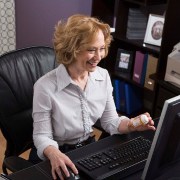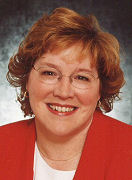 Photo: Getty Images
Photo: Getty Images
Suppose you had a small tumor removed from your torso, and that two weeks later, your doctor told you, “Your disease is so aggressive, that you have only a few months to live.”
What would you do?
That’s what my doctor told me. In the summer of 2004, after being diagnosed with a rare form of lymphoma, I was told that I’d be dead before the new year. Chemotherapy might buy me an extra year or so, so I should begin treatments immediately.
But my intuition told me otherwise. I felt fine! I had no other symptoms. So I set out to decipher that disconnect.
I did a lot of research, questioned everything, broke a few rules, sought second and third opinions, got copies of my test results, and ultimately, with the help of a hematopathologist at the National Institutes of Health, proved the diagnosis was wrong. I had no cancer. To this day, I have never had any treatment.
It was a horrible, frightening, expensive experience.
Afterward, I decided to learn everything I could about the health care system that, instead of helping me improve my health, had tried to destroy me.
My research produced some sobering statistics. In a landmark 1999 report from the Institute of Medicine, between 44,000 and 99,000 Americans die annually from a misdiagnosis or medical error. Fast forward to 2011, and new reports from the journal Health Affairs stated that millions of patients are injured in hospitals alone.
I shudder when I realize how close I came to being one of those statistics. Clearly, if it could happen to me, it could happen to anyone. As I tapped in to my spiritual side, the “why me?” turned into “why not me?” I decided to become proactive. Revenge, in the form of empowering other patients and their advocates, could be sweet.
Thing is – I’m probably just like you. I have no medical training. I can’t stand the sight of blood. I barely passed high school biology. But I am a former teacher, spent twenty years as a marketing consultant, and throughout my life I have been a writer and a speaker. I know that the tools, attitudes and resources that helped me disprove my impending demise can help you make better medical decisions for yourself and your loved ones, too.
Today I write a newspaper column, have written two books, and speak across the country to patients - teaching them how to get the best health care they can, and to providers - teaching them how to communicate better with their patients.
Now I’ve been invited to write for EmpowHER. According to Pew Internet Research, women make up the majority of the health information seekers online. What a wonderful opportunity to share my messages with the very people who seek to be empowered!
Over time, I'll focus on supporting you as you struggle with your own health care challenges, or those you undertake as an advocate for your loved ones. I'll offer advice from a patient’s – not a doctor’s – point of view. I'll teach you to be a better researcher, decision-maker, advocate, collaborator and communicator so you, too, can get the great health care you deserve.
Join me on this journey!
Trisha Torrey is Every Patient's Advocate and the author of You Bet Your Life! The 10 Mistakes Every Patient Makes (How to Fix Them to Get the Health Care You Deserve). She writes and speaks on patient empowerment and advocacy issues, teaching us all how to get the effective health care we deserve.





Add a Comment1 Comments
Hi Tricia - It's wonderful to see you on EmpowHER, my friend, and I'm looking forward to your posts. Your work in teaching people how to navigate the healthy system has helped thousands of people and your voice is a welcome addition! I wish you all the best!
April 9, 2011 - 8:09amPat
This Comment